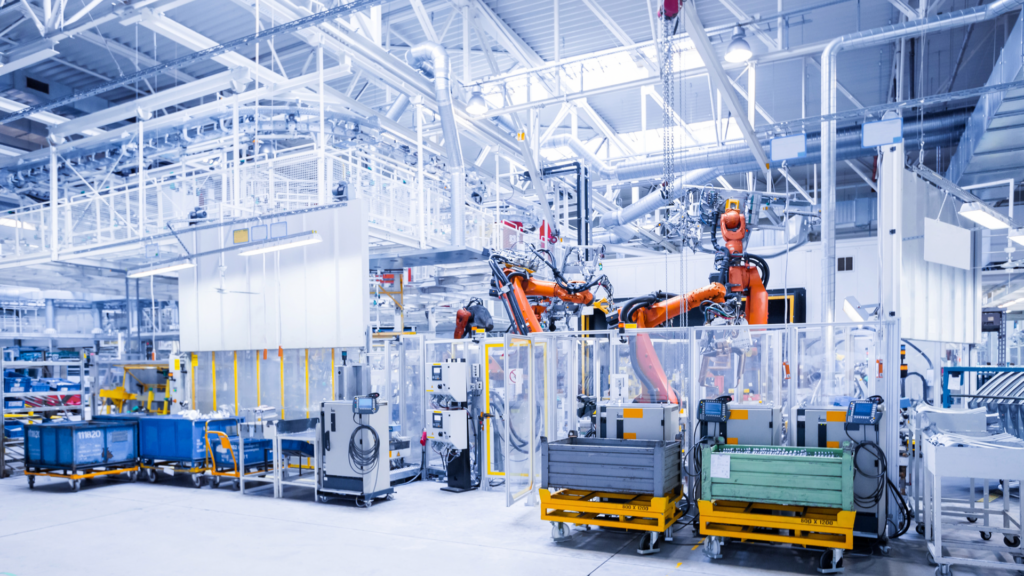
Are you looking for an advanced technology solution that can help you streamline your manufacturing process? If so, an ERP system is the perfect choice for you! ERP, or Enterprise Resource Planning, is a software system that helps organizations manage their daily operations, such as finances, inventory, and production.
In this blog, we’ll discuss the benefits of implementing an ERP system in manufacturing, the components and features of an ERP system, and how to choose the right ERP system. So, let’s get started!
What is an ERP System?
An ERP system is an integrated suite of software applications that are designed to manage an organization’s resources, such as finances, inventory, and production. ERP systems provide a centralized platform for all of an organization’s processes, allowing for better coordination and communication between departments.
By integrating these processes into a single system, ERP systems make it easier to track and monitor processes, allowing organizations to make more informed decisions. ERP systems also help to reduce costs and increase efficiency, as they eliminate the need for manual data entry and provide real-time access to accurate data.
Benefits of ERP Systems in Manufacturing
ERP systems offer a variety of benefits to manufacturing organizations, including improved inventory management, streamlined production planning and scheduling, and more efficient bill of materials (BOM) management.
Inventory management is one of the key benefits of an ERP system in manufacturing. An ERP system can help organizations manage their inventory more effectively by providing real-time visibility into their inventory levels. This helps to ensure that they always have the right amount of inventory on hand, eliminating the need for costly overstocking.
ERP systems also help to streamline production planning and scheduling. By providing accurate, up-to-date data on production timelines, ERP systems enable organizations to better plan and schedule their production processes. This helps to ensure that production is completed in a timely and efficient manner, reducing waste and increasing output.
Lastly, ERP systems help to improve bill of materials (BOM) management. By providing a centralized platform for all of an organization’s BOMs, ERP systems make it easier to track and manage them. This helps to ensure that organizations always have the right components on hand, reducing the risk of delays.
ERP System Components and Features for Manufacturing
ERP systems used in manufacturing are composed of several components, each of which plays a key role in managing an organization’s processes. The most common components include inventory management, production planning and scheduling, bill of materials (BOM) management, and work orders.
Inventory management is the process of tracking and managing an organization’s inventory levels. ERP systems provide real-time visibility into an organization’s inventory levels, allowing them to easily track and manage their inventory. This helps to ensure that organizations always have the right amount of inventory on hand, reducing the risk of overstocking.
Production planning and scheduling is the process of planning and scheduling an organization’s production processes. ERP systems provide real-time data on production timelines, enabling organizations to better plan and schedule their production processes. This helps to ensure that production is completed in a timely and efficient manner, reducing waste and increasing output.
Bill of materials (BOM) management is the process of tracking and managing an organization’s BOMs. ERP systems provide a centralized platform for all of an organization’s BOMs, making it easier to track and manage them. This helps to ensure that organizations always have the right components on hand, reducing the risk of delays.
A work order is a document that provides all the information about a maintenance task and outlines a process for completing that task. Work orders can include details on who authorized the job, the scope, who it’s assigned to, and what is expected. ERP systems provide a centralized platform for creating and managing work orders, enabling organizations to easily track and monitor their progress. This helps to ensure that tasks are completed in a timely and efficient manner, increasing productivity and reducing costs.
Lastly, capacity planning is the process of determining an organization’s capacity to handle production processes. ERP systems provide the necessary tools to help organizations accurately plan and manage their capacity, enabling them to make more informed decisions. This helps to ensure that organizations are utilizing their resources in the most efficient way possible, reducing waste and increasing output.
Choosing the Right ERP System such as Xorosoft
Choosing the right ERP system can be a daunting task, as there are many different ERP systems available on the market. When selecting an ERP system, it’s important to consider the unique needs of your organization and select a system that meets those needs.
It’s also important to consider the cost of the ERP system. ERP systems vary greatly in terms of cost, so it’s important to find a system that fits within your budget. Additionally, it’s important to consider the support options available with the system, as well as the system’s scalability and integration capabilities.
Conclusion
In conclusion, an ERP system like Xorosoft can be a great asset to any manufacturing organization. ERP systems provide a centralized platform for all of an organization’s processes, allowing for better coordination and communication between departments. They also provide a variety of benefits, such as improved inventory management, streamlined production planning and scheduling, and more efficient bill of materials (BOM) management.
When selecting an ERP system, it’s important to consider the unique needs of your organization and select a system that meets those needs. It’s also important to consider the cost of the system, as well as the system’s scalability and integration capabilities.
By implementing an ERP system, you can supercharge your manufacturing process and take your organization to the next level. So, what are you waiting for? Start your search for the perfect ERP system today!




